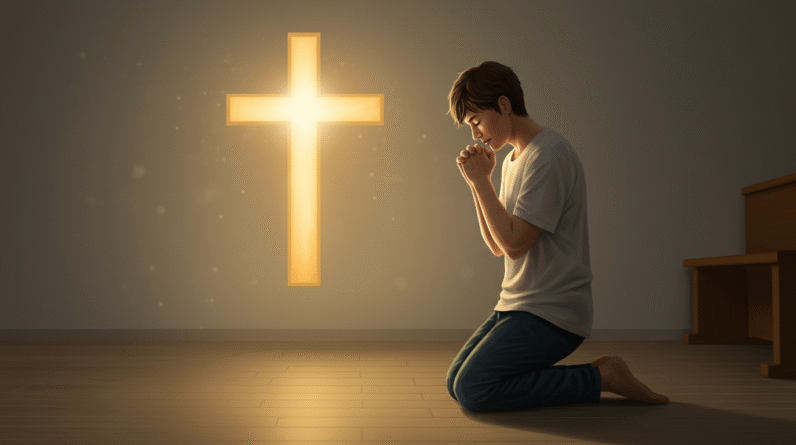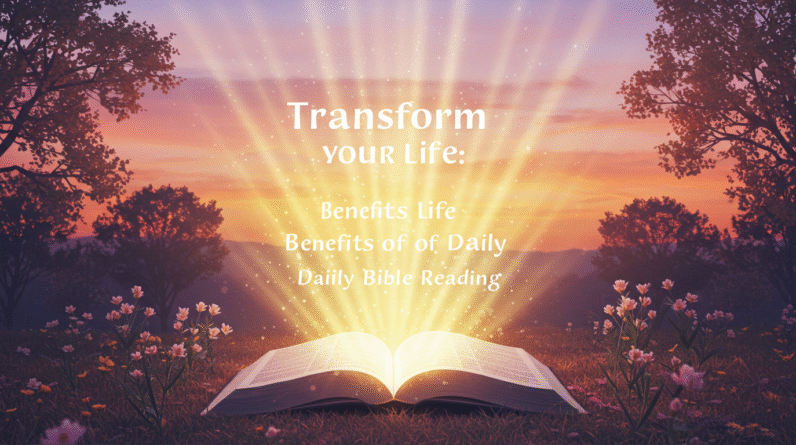Morning Vs. Evening Prayer: Which Strengthens Your Faith More?
Understanding the rhythm of your spiritual journey can often feel like an exploration of your inner desires and commitments. Among the daily rituals that shape this journey is prayer, a vital practice for many seeking spiritual growth and connection. But one question looms large for many: is it more beneficial to start your day with a morning prayer or to end it with an evening prayer? Whether you’re an early bird tapping into the morning sun’s energy or a night owl finding solace in the quiet of the evening, both time frames offer unique benefits. Let’s delve into these practices to discover which aligns better with your life.
The Tradition of Morning Prayer
Morning prayer is a longstanding tradition that punctuates the start of many spiritual lives. As you awaken to a new day, a morning prayer can set the tone for the hours ahead, aligning your focus and energy around gratitude and intention. For many, this involves acknowledging a higher power, seeking guidance, and finding peace before the day’s demands take hold.
Morning prayer allows you to spiritually “wake up,” preparing your heart and mind to face challenges with grace and patience. It’s akin to planting seeds of hope and faith at the dawn of your day, assuring that your actions and interactions are grounded in mindful contemplation. A frequently cited passage for morning inspiration comes from the Psalms: Psalm 5:3, where the psalmist declares, “In the morning, Lord, you hear my voice; in the morning I lay my requests before you and wait expectantly.”
The Serenity of Evening Prayer
In contrast, evening prayer provides a reflective space to reconcile your day. As dusk paints the sky, it offers an opportunity to decompress and release any burdens held over the previous hours. This practice allows you to reflect, give thanks, and seek forgiveness or resolve.
The evening is a time to center yourself, ensuring that you rest easy with a mind at peace. It serves as an anchor for many, a way to close the day by echoing faith and trust. Jesus himself made evening prayer a cornerstone, as highlighted in Matthew 26:36, a moment of intimate prayer and reflection in the Garden of Gethsemane.
Morning Prayer: Setting Intentions
One of the primary benefits of a morning prayer is the chance to set intentions for the day. As you rise, you have a clean slate—an opportunity to set your focus on what matters most. This act can significantly shape your day, infusing it with clarity and direction. Setting intentions with your morning prayer can bring a sense of purpose and motivation, much like a gentle nudge guiding you through daily pursuits and decisions.
When you engage with the world from a place of intention, your actions are more likely to reflect compassion, forgiveness, and love—all virtues encouraged in numerous scriptural texts, such as Proverbs 16:3: “Commit to the Lord whatever you do, and he will establish your plans.”
Evening Prayer: Reflecting and Seeking Peace
While morning prayer sets the stage, evening prayer wraps your day in a blanket of reflection and peace. The quietude allows you to contemplate where you succeeded and where you need grace and wisdom. It’s a practice of humility, acknowledging the context of growth within your journey.
Evening prayers offer a sanctuary for you to let go of the day’s stresses, acknowledge blessings, and entrust your worries to a loving presence. It’s a spiritual exhale, an invitation to rest easy and rise renewed. Remember, as stated in Psalm 4:8, “In peace I will lie down and sleep, for you alone, Lord, make me dwell in safety.”

The Influence of Lifestyle on Prayer Time
Choosing between morning prayer and evening prayer isn’t just about preference; it’s about aligning your spiritual practice with your lifestyle. Are you someone who finds their mind clearer and more focused in the early hours, or do you experience a deep calm and introspection as the night falls?
Consider your energy levels, commitments, and natural rhythms. Many find that incorporating prayer into a time when they feel most present and attuned is crucial for a meaningful experience. The key is consistency and creating a habit that naturally fits into your everyday life, whether you light a candle at dawn or offer a quiet moment of thanks beneath the stars.
Morning Prayer: Gratitude and New Beginnings
Mornings symbolize new beginnings and offer an ideal opportunity to practice gratitude, a deeply transformative aspect of any spiritual path. A morning prayer rooted in gratitude can shift your perspective, highlighting abundance and blessings, fostering a more positive outlook.
Infusing your start with gratitude sets a ripple effect, positively impacting your mindset and interactions throughout the day. Think of Philippians 4:6-7: “Do not be anxious about anything, but in every situation, by prayer and petition, with thanksgiving, present your requests to God.”
Evening Prayer: Forgiveness and Release
For many, evening prayer is a time to embrace forgiveness, both for oneself and others, nurturing healing and emotional freedom. It’s a divine exchange—a chance to throw off the cloak of burdens and embrace grace. This practice can become a potent exercise in compassion and understanding, cultivating a forgiving spirit within you.
As the day ends, use this sacred time to release grudges, disappointments, or regrets. This act of surrender allows you to rise the next morning lighter and more centered, drawing inspiration from Ephesians 4:26-27: “In your anger do not sin: Do not let the sun go down while you are still angry, and do not give the devil a foothold.”
The Power of Routine in Spiritual Practice
One important consideration is the power of routine in spiritual practice. Prayer, much like any habit, with repetition, becomes deeply ingrained in your daily life. The consistency of prayer, in the morning or evening, builds a spiritual muscle, reinforcing faith and perspective.
A routine provides structure and stability, offering a safe harbor to anchor your spiritual journey. Whether beginning the day with a few precious moments or closing it with quiet reflection, creating a dependable practice solidifies a lifestyle in a spiritual connection.
Embarking on Your Spiritual Rhythm
In choosing the rhythm that suits you, be guided by your instincts and unique spiritual journey. Perhaps you’ll find solace and strength in morning prayer, invoking the dawn’s light as a beacon of hope and intention. Or maybe the tranquil embrace of evening prayer resonates more, cushioning your soul with peace and reflection.
Ultimately, the efficacy of your practice lies in its authenticity and the depth of connection it fosters. It’s not about rigid adherence to a schedule but about embracing a rhythm that nurtures your soul and enhances your spiritual path.
Conclusion: Personalize Your Practice
The choice between morning and evening prayer isn’t a dichotomy but an opportunity to personalize your spiritual practice. Each offers distinct blessings and reflections, urging you to explore what resonates within your soul. Whether ushering in the day with gratitude or finding closure in the night, choose a path that enriches your journey and aligns with who you are.
Remember, prayer is an experience of the heart, an intimate reflection of faith, and a bridge to the divine—a conversation that continues through both light and darkness. Let the rhythm of your chosen practice sing through you, harmonizing with all aspects of your life.
Explore More
For further reading and encouragement, check out these posts:
👉 7 Bible Verses About Faith in Hard Times
👉 Job’s Faith: What We Can Learn From His Trials
👉 How To Trust God When Everything Falls Apart
👉 Why God Allows Suffering – A Biblical Perspective
👉 Faith Over Fear: How To Stand Strong In Uncertain Seasons
👉 How To Encourage Someone Struggling With Their Faith
👉 5 Prayers for Strength When You’re Feeling Weak

📘 Jesus and the Woman Caught in Adultery – Grace and Mercy Over Judgement
A powerful retelling of John 8:1-11. This book brings to life the depth of forgiveness, mercy, and God’s unwavering love.
👉 Check it now on Amazon
As a ClickBank Affiliate, I earn from qualifying purchases.
Acknowledgment: All Bible verses referenced in this article were accessed via Bible Gateway (or Bible Hub).
“Want to explore more? Check out our latest post on Why Jesus? and discover the life-changing truth of the Gospel!”








